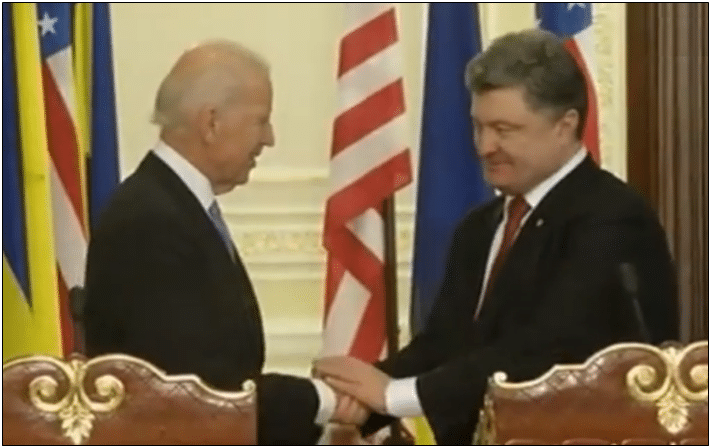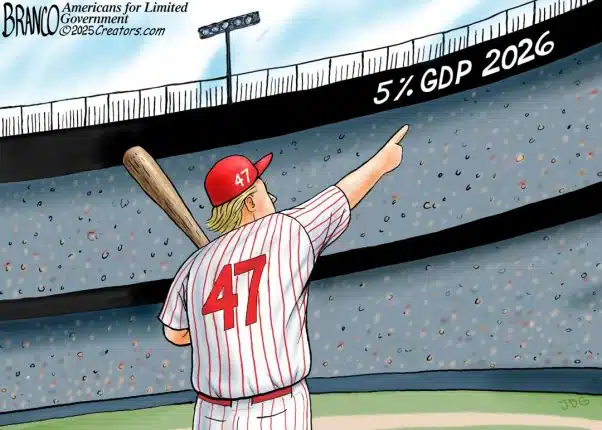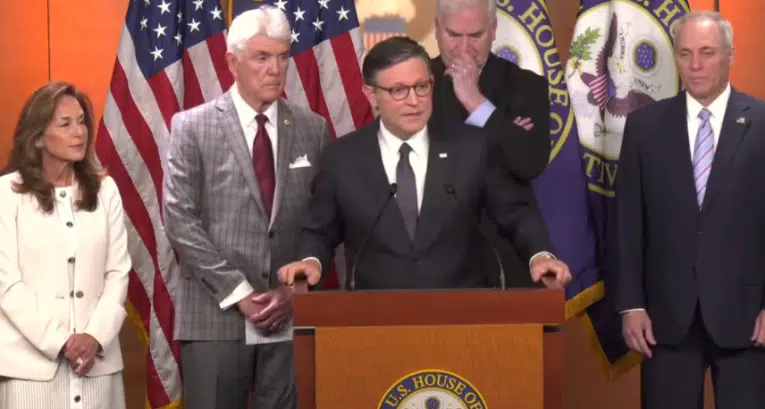
Former Hunter Biden business partner Devon Archer has alleged that Burisma Holdings pressured Hunter Biden “to get help from D.C.” over Ukrainian prosecutor Viktor Shokin, who was investigating Burisma for corruption, and “called D.C.” to discuss it, according to a U.S. House Oversight Committee readout of the July 31 testimony.
“In December 2015, Mykola Zlochevsky, the owner of Burisma, and Vadym Pozharski, an executive of Burisma, placed constant pressure on Hunter Biden to get help from D.C. regarding the Ukrainian prosecutor, Viktor Shokin. Shokin was investigating Burisma for corruption. Hunter Biden, along with Zlochevsky and Pozharski, ‘called D.C.’ to discuss the matter. Biden, Zlochevsky, and Pozharski stepped away to make the call,” the committee posted on Twitter.com on July 31.
In Jan. 2018, then former Vice President Joe Biden bragged to the Council on Foreign Relations about getting Shokin fired by threatening to withhold a $1.2 billion International Monetary Fund (IMF) loan from then Ukrainian President Petro Poroshenko in March 2016.
According to Biden, “I said, ‘You’re not getting the billion.’ I’m going to be leaving here in, I think it was about six hours. I looked at them and said: ‘I’m leaving in six hours. If the prosecutor is not fired, you’re not getting the money.’… Well, son of a bitch, he got fired. And they put in place someone who was solid at the time.”
Archer’s testimony stands as the first bit of corroboration of a June 26, 2020 FD-1023 released by Sen. Chuck Grassley (R-Iowa) and House Oversight Committee Chairman James Comer (R-Ky.) that alleged the Bidens took $10 million of bribes to protect Burisma’s bid for a U.S.-based initial public offering and referenced the Shokin firing.
According to the confidential source, the meeting in early 2016, said to be in Vienna, Austria between Burisma CEO Mykola Zlochevsky, Burisma CFO Alexander Ostapenko and the source, “took place around the time Joe Biden made a public statement about (former) Ukraine Prosecutor General Viktor Shokin being corrupt, and that he should be fired/removed from office. CHS told Zlochevsky that due to Shokin’s investigation into Burisma, which was made public at this time, it would have a substantial negative impact on Burisma’s prospective IPO in the United States. Zlochevsky replied something to the effect of, “Don’t worry Hunter will take care of all of those issues through his dad.”
In the FD-1023, the source quoted Zlochevsky as allegedly stating, “it cost 5 (million) to pay one Biden, and 5 (million) to another Biden…”
Shokin in April 2019 told journalist John Solomon that prior to the election of the new Ukrainian President Volodymyr Zelensky, he was removed in 2016 because of his investigation of Burisma, which Biden’s son, Hunter, served on the Board of Directors of.
In an affidavit in a European court in 2019, Shokin testified, “The truth is that I was forced out because I was leading a wide-ranging corruption probe into Burisma Holdings, a natural gas firm active in Ukraine and Joe Biden’s son, Hunter Biden, was a member of the Board of Directors… On several occasions President Poroshenko asked me to have a look at the case against Burisma and consider the possibility of winding down the investigative actions in respect of this company but I refused to close this investigation.”
This was the matter President Donald Trump sought to have Ukrainian President Volodymyr Zelensky “look into” on the July 25, 2019 phone call with current Ukrainian President Volodymyr Zelensky. In the phone call with Zelensky, Trump said, “It sounds horrible to me.”
In a speech to the Ukrainian Rada (the legislature) on Dec. 9, 2015, then Vice President Biden stated of Shokin and his office was “desperately [in need of] reform: “[I]t’s not enough to set up a new anti-corruption bureau and establish a special prosecutor fighting corruption. The Office of the General Prosecutor desperately needs reform. The judiciary should be overhauled. The energy sector needs to be competitive, ruled by market principles — not sweetheart deals.”
In the same breath that Biden was pressing Ukraine to overhaul Shokin’s office, he expressed concern and interest over Ukraine’s energy sector. Biden next added, ironically as it turns out, “It’s not enough to push through laws to increase transparency with regard to official sources of income. Senior elected officials have to remove all conflicts between their business interest and their government responsibilities.”
And afterward, on May 13, 2016, according to the Obama White House, Biden had a phone call with Poroshenko about the Prosecutor General’s office, officially welcoming the firing of Shokin: “The Vice President spoke today with Ukrainian President Petro Poroshenko. The Vice President welcomed the appointment of a new Prosecutor General as an important first step to bringing much-needed reform to the Office of the Prosecutor General. The Vice President also commended legislative changes that will set up an independent Office of the Inspector General in the Office of the Prosecutor General and allow prosecutions to begin against Yanukovych-era officials. The Vice President informed President Poroshenko that the United States was prepared to move forward with the signing of the third $1 billion loan guarantee agreement, which will support continued progress on Ukrainian reforms. The leaders also condemned the continued aggression by combined Russian/separatist forces against Ukraine, and agreed on the critical importance of accelerating progress on Minsk implementation by all sides.”
This appears to be the same leaked call from May 2016 that was later removed by YouTube but is still viewable on web.archive.org, where Biden is heard saying, “[C]ongratulations on installing the new prosecutor general, it’s going to be critical for him to work quickly to repair the damage Shokin did. And I’m a man of my word. And now that the new prosecutor general is in place, we’re ready to move forward in signing that one billion dollar loan guarantee.” The call’s transcript appears to match the White House’s description of the call, and the phone call is said to have been recorded by Poroshenko himself.
But when the audio was released in 2020 during the presidential election campaign, U.S. officials said that the Ukrainian lawmaker who had released it, Andrii Derkach, was an “active Russian agent”. In a Sept. 2020 AP News story, none other than disinformation “expert” Nina Janckowicz, then a disinformation fellow at the Wilson Center, was quoted, “It’s certainly an influence campaign… It’s misleading to an audience that doesn’t have the full picture.”
And yet, the U.S. Treasury was officially sanctioning Derkach in Sept. 2020. According to the Treasury statement, “Derkach has directly or indirectly engaged in, sponsored, concealed, or otherwise been complicit in foreign interference in an attempt to undermine the upcoming 2020 U.S. presidential election. Today’s designation of Derkach is focused on exposing Russian malign influence campaigns and protecting our upcoming elections from foreign interference.”
The Treasury’s efforts appeared in tandem with the 2018 through 2020 National Defense Authorization Acts included extensive provisions allowing the government to target what it calls “foreign malign influence” by Russia and other countries, but which was used to target to speech of regular Americans, including violating the freedom of the press as it related to reports about Russiagate and also the Hunter Biden laptop story.
In the 2018 NDAA, under Sec. 1239A it authorized the censorship: “The Secretary of Defense and the Secretary of State, in coordination with the appropriate United States Government officials, shall jointly develop a comprehensive strategy to counter the threat of malign influence” including “the use of misinformation, disinformation, and propaganda in social and traditional media” and “Efforts to work with traditional and social media providers to attribute and counter the threat of malign influence…”
The video of the Biden-Poroshenko call was removed according to the service: “This video is no longer available because the YouTube account associated with this video has been terminated.”
Was the Biden-Poroshenko terminated at the behest of government officials who were actively calling it Russian disinformation, similar to the Hunter Biden laptop? If so, the information about Biden’s firing of Shokin was not merely covered up by Biden, but by U.S. government agencies and departments in the national security apparatus.
In addition to corroborating the pressure from Burisma to fire Shokin, House investigators should also examine how the U.S. government suppressed information about this on an ongoing basis.
Now, we know, via Archer, that Burisma was indeed pressuring Hunter Biden to work his connections in Washington, D.C. to deal with Shokin, and that Hunter Biden repeatedly put his father on the phone with Burisma executives. And at the same time, Biden was lecturing the Ukrainian legislature about how “Senior elected officials have to remove all conflicts between their business interest and their government responsibilities.” The audacity is unmatched, but for Biden, appears to be par for the course.
For House Republicans, there is more than enough to go on here for what U.S. House Speaker Kevin McCarthy has stated could lead to an “impeachment inquiry,” which would enhance the House’s ability to depose witnesses and compel testimony.
It is certainly more to go on than the 2016 dossier by former British spy Christopher Steele, which utilized uncorroborated sources to allege, falsely as it turned out, that former President Donald Trump was a Russian agent who had conspired with Moscow to hack the Democratic National Committee and John Podesta and put their emails onto Wikileaks.
But besides the supposed conspiracy with Russia to hack the DNC, Trump’s policy proposals related to Russia were laced all throughout the original Carter Page FISA warrant of Oct. 2016 as part of the justification for the surveillance, with allegations that Russia was attempting to convince the Trump campaign to not send weapons to Ukraine and to instead recognize Russia’s annexation of Crimea in Ukraine, telling the FISA Court that the Trump campaign, per the FISA application, “worked behind the scenes to make sure [the Republican] platform would not call for giving weapons to Ukraine to fight Russian and rebel forces” stating Trump “might recognize Crimea as Russian territory and lift punitive U.S. sanctions against Russia,” citing news reports.
The Justice Department also included an Aug. 2016 Politico story highlighting Trump’s positions on Ukraine, including his suggestion the people of Crimea preferred to live in Russia, and his doubts that the territories Russia had seized could be reclaimed suggested without World War III, which Trump was running against on the campaign trail as much as Hillary Clinton.
At a Harrisburg, Pennsylvania, Politico quoted Trump saying a military conflict to take back Crimea would risk nuclear war: “You wanna go back? …You want to have World War III to get it back?” And it quoted Trump on ABC’s “This Week” suggesting the people of Crimea supported Russian annexation: “The people of Crimea, from what I’ve heard, would rather be with Russia than where they were.” This was Trump’s anti-war position in 2016 that helped him secure narrow wins in Pennsylvania, Michigan and Wisconsin and an Electoral College majority against Hillary Clinton, who he often called a war-monger.
These were policy differences between Trump and his opponent, Clinton, that inevitably were transformed into a plot by a foreign adversary to create a Manchurian candidate of sorts. Eventually, the allegations would unravel, thanks in large part to former Special Counsel Robert Mueller’s own work, who found there was no Trump campaign conspiracy with Russia to hack the DNC and give the emails to Wikileaks. According to Mueller’s final report to the Attorney General, “the evidence was not sufficient to charge that any member of the Trump Campaign conspired or coordinated with representatives of the Russian government to interfere in the 2016 election.”
The report added, “In particular, the Office did not find evidence likely to prove beyond a reasonable doubt that Campaign officials such as Paul Manafort, George Papadopoulos, and Carter Page acted as agents of the Russian government — or at its direction, control or request — during the relevant time period.”
The FD-1023 form that House Oversight Chairman Comer and Sen. Grassley have released, taken in isolation, appears to be dependent on a single, uncorroborated source related to the specific allegation of bribery to the Bidens, in this case, supposedly with the Bidens receiving $10 million in part for getting the Ukrainian prosecutor Shokin fired.
That part of this is not confirmed. But the part that states Biden was publicly pressuring for Shokin’s office to be overhauled is confirmed. By Biden’s own words in 2018, he was directly responsible for Shokin getting fired. And now, Devon Archer has confirmed that Burisma pressured Hunter Biden to deal with Shokin.
The FD-1023 is from June 2020, long after the first Trump impeachment, and long after knowledge of Biden bragging about getting Shokin fired were known publicly, and after Shokin’s own allegations related to his removal were made public by John Solomon in 2019. Whoever the confidential source to the FBI was is critical to the House’s case. What is alleged might be true, or it could have been contrived on a post-hoc basis with all of the available public threads as a political hit job. In the FBI document, the source is said to have spoken to the Burisma executive, Zlochevsky, three times, two of were over the phone, and in all three conversations, Zlochevsky openly admits to bribing the Bidens. In some respects, it sounds too good to be true.
When the FD-1023 was first teased by House Oversight, it was stated “The FD-1023 was generated by the FBI on 6/30/20 based on another FBI record from 2017.”
But reading the document, it is unclear what information in the memorandum is from the other FBI record of 2017. It just states: “See previous CHS report dated 3/1/2017 … Serial 7, wherein CHS reported the foregoing, and stated the call took place during the week of 2/27/2017. At that time, CHS stated that Zlochevsky briefly discussed Hunter Biden, but the topic was not relevant to Burisma’s interest in acquiring a US-based petroleum business for $50-$100 million. At this time CHS also reported aforementioned Vadym Pozharkyi … was assigned to Burisma to manage the acquisition, and he was planning to travel to Washington, D.C. in March, 2017.” Whereas, at the top of the June 2020 FD-1023 it states: “On June 26, 2020, CHS… reported the following…” including all of the information about the alleged bribes to the Bidens.
House Republicans need the 2017 FD-1023 as well, and if possible, the source of the document.
The source allegedly had information dating to 2015 and 2017, and had brought certain information to the FBI in early 2017, but it is unclear whether it included any information about this supposed bribery scheme, for which the source claimed to be a witness to Zlochevsky allegedly bragging about the bribes. If the information wasn’t in the 2017 FD-1023, a good question might be why not? Why only include Shokin-related allegations in a report to the FBI after Shokin’s removal was all over the news, and in the middle of the 2020 presidential campaign when the Trump campaign was playing up Biden’s foreign dealings?
It sounds like they need that witness who spoke to the FBI, without which the case being made might appear to be circumstantial. Where’s the smoking gun?
One of the failures Special Counsel Durham found in the Russiagate investigation was a presumption among lower level FBI personnel that further up the chain of command, Justice Department officials possessed superior knowledge of the supposed Trump-Russia plot to hack the DNC. But we now know they never did, and in fact, had lots of information that disputed the official line of the investigation, including intelligence that was withheld from investigators.
Even as further information is coming to light via the House’s investigation, it remains important that investigators remain skeptical of Is anyone up there skeptical about what we’re being shown? They need to be able to tell the difference between facts and being told what they want to hear. They still must separate fact from fiction.
But they should also be asking questions about why the federal government was so determined to suppress the 2016 Biden phone call with Poroshenko, if it was in fact genuine. It makes all this look like a cover-up.
But is all the more problematic when one considers Biden’s own role in helping to spark the Ukrainian civil war in 2014 that eventually led to Russia’s 2022 invasion. But it all started out as a policy disagreement over a pair of competing trade agreements with the European Union and Russia, as detailed by Biden in his book, “Promise Me, Dad: A Year of Hope, Hardship, and Purpose,” published in 2017.
“A popular demonstration,” Biden wrote, “which started at a square in Kyiv in late 2013, when President Viktor Yanukovych reneged on his promise to take the country into the European Union, had grown from a spontaneous eruption to a real political movement — one President Yanukovych mishandled badly.”
Here, Biden is referring to the pro-Europe, anti-Russia trade agreement, the Ukraine–European Union Association Agreement. It was a trade deal Yanukovych’s then-adviser Paul Manafort had advised him to adopt, but in 2013, he rejected Manafort’s advice, pulling out of the deal. What followed was a revolution in Ukraine that ultimately ousted Yanukovych from power in 2014, embroiling Ukraine in civil war that led directly to the annexation of Crimea by Russia and several separatist uprisings in eastern Ukraine. Yanukovych then fled to Russia on Feb. 22, 2014, and the trade deal was signed in March 2014 by interim Prime Minister Arseniy Yatsenyuk.
By Biden’s account, it was his pressure that prompted Yanukovych to flee: “I made the last of many urgent calls to Yanukovych in late February of 2014, when his snipers were assassinating Ukrainian citizens by the dozens and we had credible reports that he was contemplating an even more vicious crackdown. I had been warning him for months to exercise restraint in dealing with his citizens, but on this night, three months into the demonstrations, I was telling him it was over; time for him to call off his gunmen and walk away. His only real supporters were his political patrons and his operators in the Kremlin, I reminded him, and he shouldn’t expect his Russian friends to rescue him from this disaster. Yanukovych had lost the confidence of the Ukrainian people, I said, and he was going to be judged harshly by history if he kept killing them. The disgraced president fled Ukraine the next day…”
Biden was referring to the infamous Maidan Massacre that took place on Feb. 20, 2014, the flashpoint of the civil war in Ukraine. What began as peaceful protests in favor of the trade deal turned bloody when snipers began firing and killing dozens of protesters and police officers. At the time, per Biden’s account, within hours of the shootings the U.S. was blaming Yanukovych and his police forces, who was impeached within two days and then promptly fled the country to Russia.
After Yanukovych was removed from power, Biden’s son was placed on the board of directors of the natural gas firm Burisma, and according to witness testimony, the company pressured the Bidens to get the prosecutor general looking into the company fired, which Biden obliged. And when Trump originally ran on an anti-war platform specific to Ukraine, U.S. intelligence, defense and Justice Department officials conspired to prevent Trump from ever implementing his policies. When former President Trump asked Ukrainian President Volodymyr Zelensky about Biden’s involvement in Ukraine in 2019, the House impeached led by Democrats impeached him before the GOP-led Senate acquitted him. And when information about Biden’s business dealings were made public in 2020, U.S. intelligence and other department intervened to suppress it as Russian disinformation.
In that sense, it might not be possible to divorce the Biden investigation on Ukraine from Trump. At the end of the day, Biden is one of the major reasons we are involved with Ukraine today, with the U.S. and Russia nearing the brink of World War III, which could go nuclear. Are we about to be bathed in nuclear hellfire in part to cover up Biden’s excesses in Ukraine? Trump on the campaign trail has claimed that the war, which has displaced millions of Ukrainians and killed tens of thousands, was preventable. Now, the House is in a position to find out just how true that really was.
Robert Romano is the Vice President of Public Policy at Americans for Limited Government Foundation.





